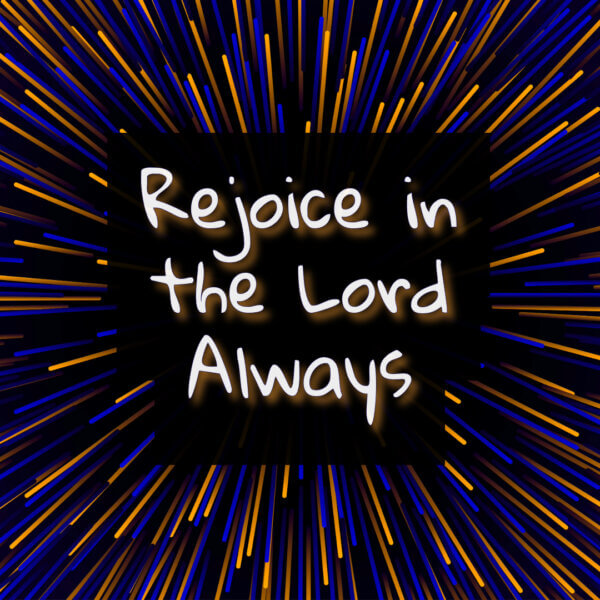
Rejoice in the Lord always
“Rejoice,” Paul urges us: “Rejoice in the Lord always; again I will say, Rejoice.” (Phil 4:4)
Recently I returned from three weeks in Australia and New Zealand. It was a joyful moment, reliving the long connection with the extended family of my Australian wife, Josephine. Followed by a delightful and challenging week of fly fishing in New Zealand.
 I confess that the chance to fish for huge trout in remote New Zealand inspired the trip. But the call to reconnect with Joso’s Australian family became its real purpose. The profound importance of that trip did not hit me until, at the last minute, my daughter Josephine signs on.
I confess that the chance to fish for huge trout in remote New Zealand inspired the trip. But the call to reconnect with Joso’s Australian family became its real purpose. The profound importance of that trip did not hit me until, at the last minute, my daughter Josephine signs on.
Joey is an inspired addition. She lights up the family connection. As we arrive, cousin Helen, head of the family…exactly my age…calls the entire clan together. When I say entire family, I mean…dozens…thirty or so, all of daughter Joey’s generation. On that brilliant Sunday afternoon in a Sydney suburb, I nibble on sandwiches for three hours watching Joey light up the room. I witness the torch being passed. I witness the joyful changing of the guard, the passing of the old to the new, to those who will carry on.
Changing of the Guard
In Luke’s account this morning, we are present for another changing of the guard. The handoff from John the Baptist to his cousin, Jesus. We haven’t had news about John recently. Not for about thirty years. Not since the angel Gabriel informs his mother, the elderly Elizabeth that she is to bear a son. A son, named John, who will bring joy and gladness to many. (1:11-14) Weeks later, sensing the sound of Mary’s voice nearby, the yet unborn John leaps in his mother’s womb. (1:39-44) Jumping with joy, rejoicing in his mission ahead: to prepare the way of the Lord. (1:76-79)
 Today, roaring like a lion, John the Baptizer bursts into our lives. From out of the wilderness, the place where, even today, God’s people wander in darkness, seeking their way home. John’s arrival doesn’t feel joyful. Not to the crowd present, whom John calls out as a brood of vipers. Calling them out as offspring of the serpent in the Garden of Eden, where everything went wrong. Describing them as lifeless stones. (3:8) “Repent,” John cries. The passport you received from your ancestor Abraham is not valid here. Entrance to the Kingdom of God demands the visa of repentance.
Today, roaring like a lion, John the Baptizer bursts into our lives. From out of the wilderness, the place where, even today, God’s people wander in darkness, seeking their way home. John’s arrival doesn’t feel joyful. Not to the crowd present, whom John calls out as a brood of vipers. Calling them out as offspring of the serpent in the Garden of Eden, where everything went wrong. Describing them as lifeless stones. (3:8) “Repent,” John cries. The passport you received from your ancestor Abraham is not valid here. Entrance to the Kingdom of God demands the visa of repentance.
Repent, John cries. “Bear fruits worthy of repentance.” In our world today the call to repent is a threat, not a promise. “Repent,” cries the street preacher in Times Square. Repent your idolatrous ways. Repent you of your sins. Repent your vanity, seek forgiveness for the sinful life you have lived. The end of the world is coming. Judgement day is near. Repent before it is too late!
This not John’s message. Luke’s Greek word for repent is metanoia. The Hebrew word for repentance is teshuva. In these languages of biblical Palestine, teshuva means: Turn. Go in a different direction. Metanoia means: Change your mind, give life a second thought. Help us, the people cry! Those most despised, the tax collectors, the Roman soldiers, cry out the loudest. How shall we change? What shall we do? John responds: Be fair in your official acts. Don’t take advantage others. Bring love into your daily lives. Let the garden of your life produce fruits worthy of repentance. Live with generosity towards all, feed and clothe the needy, act honestly with your neighbor. Your Lord asks only that “you do justice, love kindness, and walk humbly with your God” (Mic 6:8).
Wait a moment, the people wonder. Isn’t this the message we expect to receive from our Messiah? Are you that one we have been waiting for? “No,” John responds. Today I baptize you with the water of repentance. To prepare you for the coming of the one more powerful than I. He is the one who will introduce you to the Kingdom of God through baptism of fire and the Holy Spirit.
The handoff from John to Jesus is now complete. And not a moment too soon. Moments later, the Baptist is imprisoned, silenced by Herod. In the centuries that follow, darkness descends on the world. There are wars and rumors of wars. Famine, disease and tragedy descend on a global scale. Nations rise against nation. Each competes to establish their promise of world order. One after another, each soul-less worldly promise descends upon the world, comes up short, and fails. (Mk 13:7-8) To be succeeded by another man-made contrivance that enriches the few, brings suffering to the many.
Rejoice
Yet, Jesus assures us, these are only the birth pangs. (Mk 13:8) “These tragedies speak only to the state of the world, not the end.”[ii] From inside his prison, St. Paul urges us to welcome the Kingdom of God. Locked away behind bars, the example of suffering in the weight of his chains, Paul calls us: “The Lord is near. Rejoice, again I say, rejoice.”
 Paul reminds us that weeping endures but only for a night. Joy cometh in the morning. (Ps 30:5). In these words of the psalmist, I hear my wife Josephine’s example of the meaning of Joy. As a young girl, Joso describes her state of mind as she goes to bed on Christmas Eve. Nearly sick with anxiety about what she hopes to experience in the morning. And then the joy that overwhelms her as she rushes downstairs into the beauty of Christmas revealed before her.
Paul reminds us that weeping endures but only for a night. Joy cometh in the morning. (Ps 30:5). In these words of the psalmist, I hear my wife Josephine’s example of the meaning of Joy. As a young girl, Joso describes her state of mind as she goes to bed on Christmas Eve. Nearly sick with anxiety about what she hopes to experience in the morning. And then the joy that overwhelms her as she rushes downstairs into the beauty of Christmas revealed before her.
During these weeks of Advent we eagerly await the promise of Christmas morning. The joy in the coming of Christ child. The power of love that overcomes the pain, injustice and sorrows of our world. The light that lightens the darkness in the recessed corners of our lives. The grace that raises us above the state of the present world to the beauty of the life God intends for us. Paul urges us to come alive. Rejoice. Jump for joy, dance and delight in the coming of Christ. Rejoice in the Lord always; again I will say, Rejoice.
Works Referenced:
This is a sermon delivered to the congregation of Emmanuel Church, Newport RI on December 15, 2024. I am indebted to the following for their insights into the lectionary: Joel B. Green, The Gospel of Luke, Eerdmans (1977); Keith F. Nickel, Preaching the Gospel of Luke, Westminster John Knox (2000); F. Scott Spencer, The Gospel of Luke and Acts of the Apostles, Abingdon Press (2008); and, for his theological guidance, Dean Andrew McGowan, The End is Nigh (but not as nigh as all that), Berkeley Divinity School podcast 11/12/2024, (abmcg@substack.com)
Roger C. Bullard, December 15, 2024
[ii] McGowan, The End is Nigh
